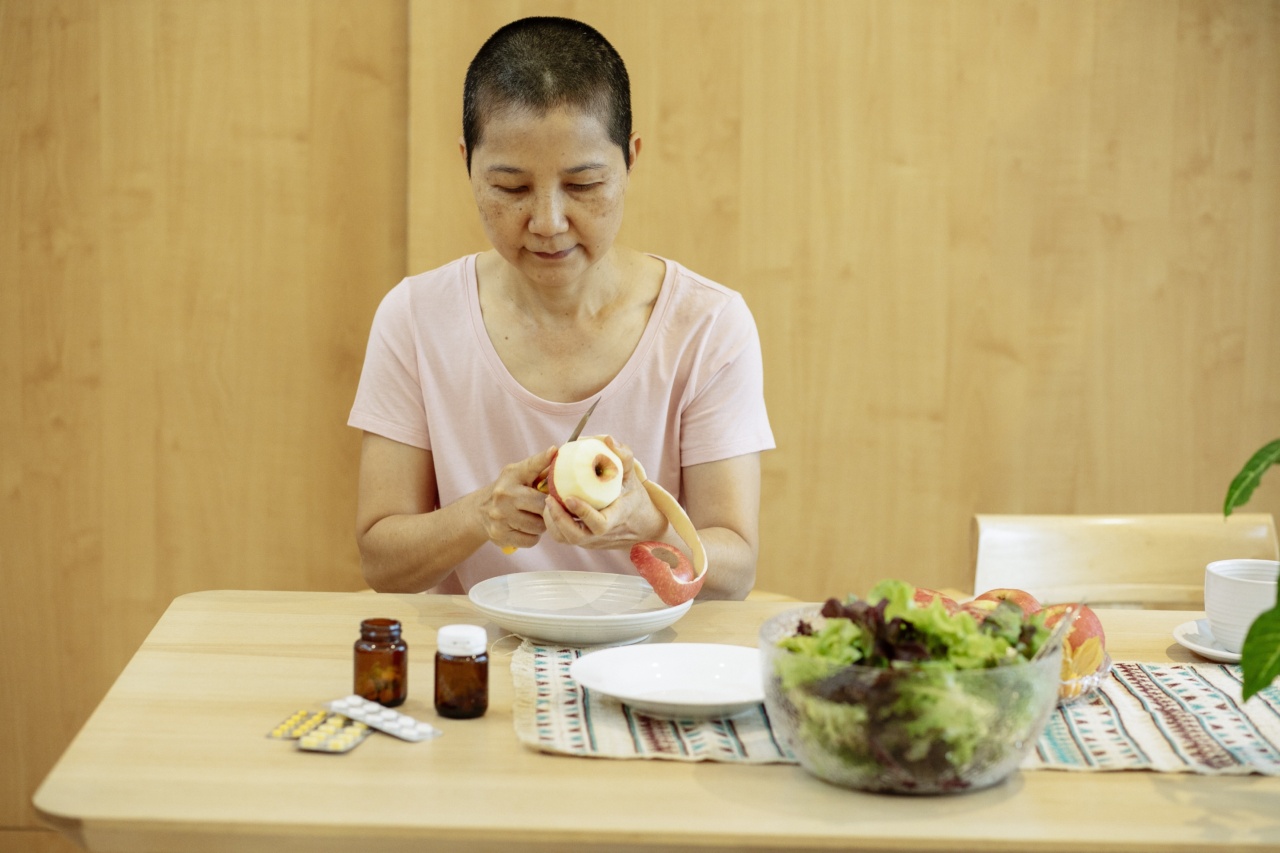Prostate cancer is the second most common cancer among men worldwide, with over 1 million new cases diagnosed every year.
According to the American Cancer Society, about 1 in 9 men will be diagnosed with prostate cancer during their lifetime, making it a significant public health concern. While there are many conventional treatments available, diet and lifestyle changes have been shown to play an essential role in the prevention and management of prostate cancer.
What is Prostate Cancer?
Prostate cancer is a malignant tumor that develops in the prostate gland, which is a walnut-sized gland present in men. The prostate gland is responsible for producing semen, the fluid that carries sperm.
Prostate cancer occurs when abnormal cells in the prostate gland start to grow uncontrollably and form a tumor.
What are the Symptoms of Prostate Cancer?
Early-stage prostate cancer may not have any signs or symptoms.
However, as the cancer grows and spreads, it can cause urinary problems such as:
- Pain or burning sensation during urination
- Frequent urination, especially at night
- Weaker urine stream
- Blood in urine or semen
- Erectile dysfunction
- Pain or discomfort in the pelvis, hips, or back
What Causes Prostate Cancer?
The exact cause of prostate cancer is unknown. However, several risk factors have been identified, including age, family history, race, and lifestyle factors such as diet and physical activity.
Men over the age of 50, African American men, and those with a family history of prostate cancer are at higher risk of developing the disease.
The Role of Diet in Preventing and Managing Prostate Cancer
Dietary factors have been found to play a crucial role in the prevention and management of prostate cancer. Studies have shown that a diet rich in fruits, vegetables, and whole grains can help reduce the risk of developing prostate cancer.
On the other hand, a diet high in saturated fats, red meat, and processed foods has been linked to an increased risk of prostate cancer.
Broccoli: The Miracle Vegetable
Broccoli, also known as Brassica oleracea, is a cruciferous vegetable that has gained significant attention for its potential anti-cancer properties.
Broccoli contains several bioactive compounds that have been associated with a reduced risk of prostate cancer, including:
- Sulforaphane – a potent anti-cancer compound that has been shown to inhibit the growth of prostate cancer cells.
- Indole-3-carbinol – a compound that has been shown to decrease the risk of prostate cancer by promoting the metabolism of estrogen.
- Fiber – a type of carbohydrate that has been shown to decrease the risk of prostate cancer by reducing inflammation and regulating hormone levels.
- Vitamin C – a powerful antioxidant that helps protect cells from damage caused by free radicals.
How Broccoli Fights Prostate Cancer?
Broccoli’s anti-cancer properties are due to its ability to regulate several key signaling pathways involved in cancer development and progression.
These pathways include:
- The PI3K/AKT pathway – an important pathway that controls cell growth and survival and is frequently dysregulated in cancer.
- The NF-κB pathway – a signaling pathway that controls inflammation and has been implicated in cancer development and progression.
- The androgen receptor (AR) pathway – a hormone receptor that plays a critical role in the development and progression of prostate cancer.
In addition to its ability to regulate these signaling pathways, broccoli has been shown to modulate several other factors involved in cancer development, including oxidative stress, inflammation, DNA damage, and apoptosis (programmed cell death).
How to Add Broccoli to Your Diet?
Adding broccoli to your diet is easy and can be done in many ways. Here are some ideas:.
- Steam or stir-fry broccoli and sprinkle with a little olive oil, garlic, and lemon juice for a quick and healthy side dish.
- Add chopped broccoli to your scrambled eggs or omelets for a nutritious breakfast.
- Use broccoli in your salads instead of lettuce to add flavor and nutrition.
- Make a broccoli soup for a tasty and healthy lunch or dinner.
- Add broccoli to your pasta or rice dishes for a quick and delicious meal.
Conclusion
Prostate cancer is a significant public health concern, affecting millions of men worldwide. While there are many conventional treatments available, diet and lifestyle changes can help prevent and manage the disease.
Broccoli, a cruciferous vegetable rich in bioactive compounds, has been shown to have significant anti-cancer properties and can play a crucial role in the prevention and management of prostate cancer. Adding broccoli to your diet is easy and can be done in many ways, making it a simple and effective way to improve your health.


























